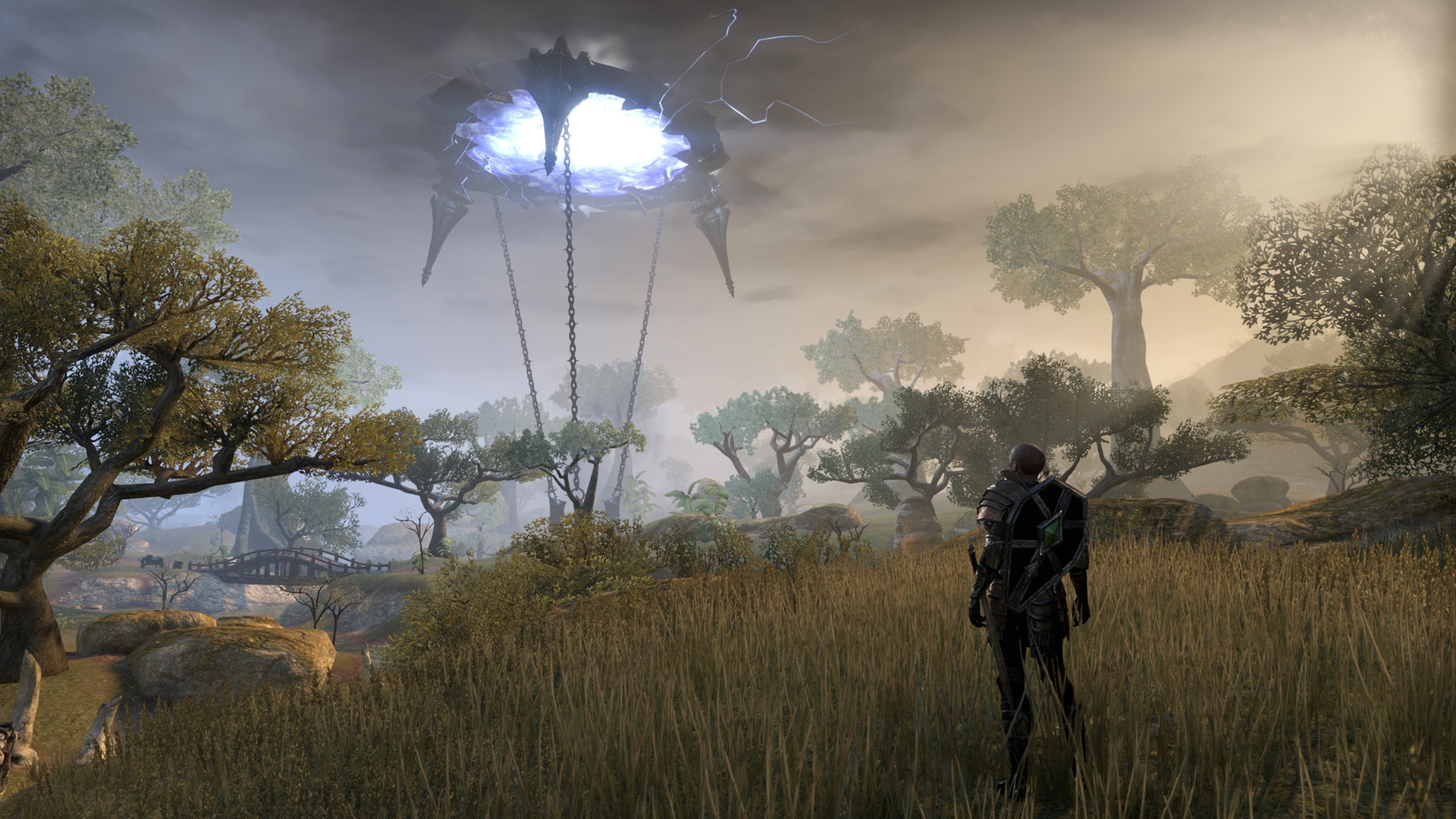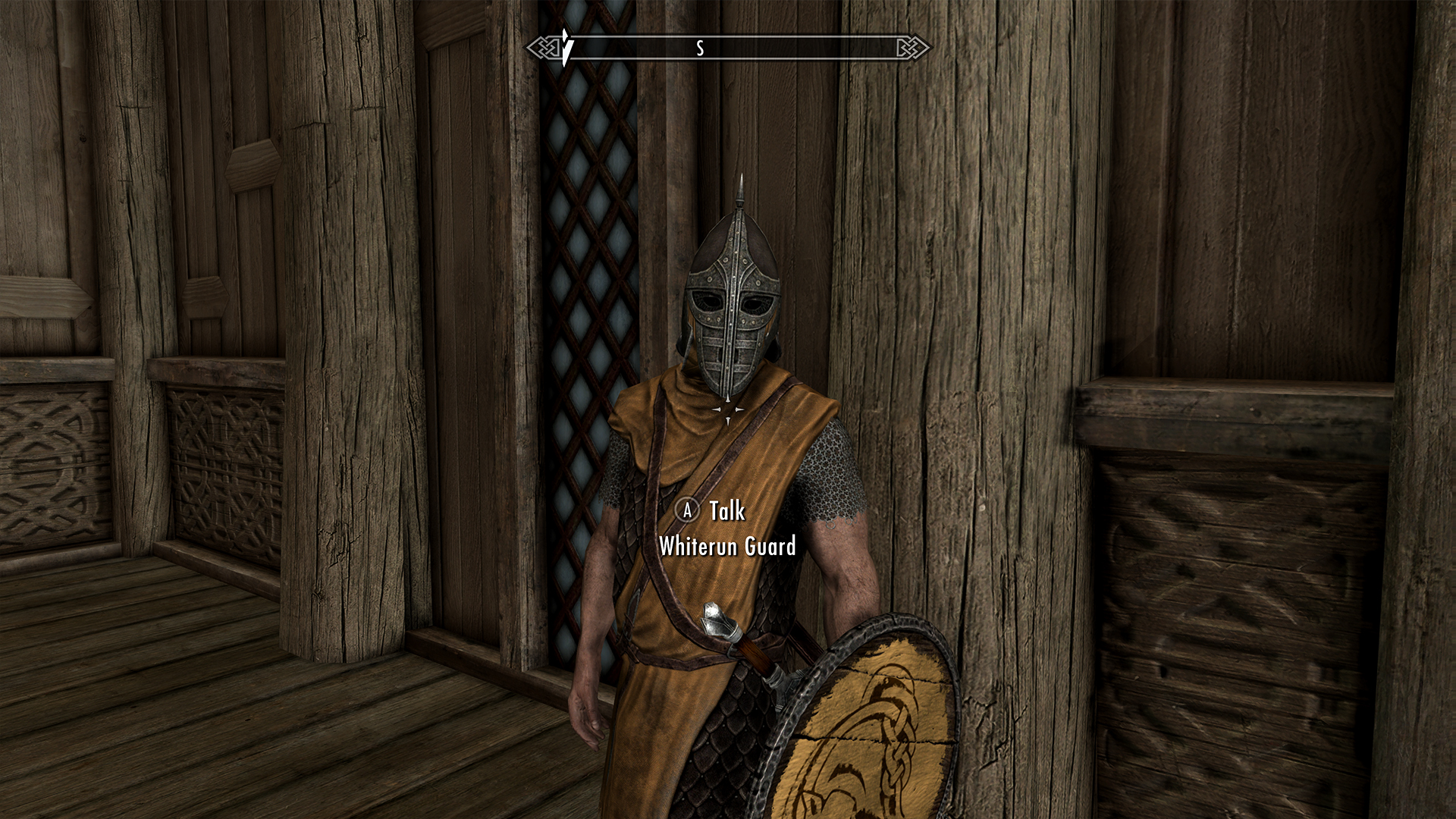
When The Elder Scrolls V: Skyrim originally launched what feels like 700 years ago, the only way to catch a fish was to hurl your entire body into a river and desperately mash the interact button as you tried to line the cursor up with a salmon.
The meat and bones of Elder Scroll’s engine are all about the secret numbers being generated as a massive silver claymore interacts with a goblin’s grimy noggin. The infrastructure of these action RPGs was never built with anything as mundane as fishing in mind.
However, Bethesda not only showed awareness of the way the wind is blowing in last year’s Anniversary Edition but also added an honest-to-goodness fishing pole for the Dovahkiin to use as they decimate the population of Windhelm’s estuary. Unfortunately, as this is an ad hoc bolt-on to a decade-old game that’s already creaking, it’s still riddled with clunky abstractions, done mostly via menus.
Coupled with an earlier official expansion, which added an equally clunky system that let players build and, to some extent, customize their own home, it’s clear that this is a direction that Bethesda is interested in exploring further. This makes perfect sense, considering how daunting the prospect of making a new Elder Scrolls 6 is that’s in any way different to the others. There’s been an Elder Scrolls the size of the United Kingdom. There‘s been an Elder Scrolls with 12-player parties. By the time the next one comes out, Bethesda will have released Starfield – a game featuring over 1,000 planets. Sheer scale feels like an old hat at this point.
Wine and cheese night

The obvious thing to do is to make an Elder Scrolls that isn’t about saving the world, but rather about living in it. The day-to-day managerial process of running a winery in Hammerfell might not set an E3 presentation on fire, but it’s exactly the sort of thing that people love to spend hundreds of hours doing in video games these days.
People don’t want to spelunk through a cave filled with goblins any more; they want to meticulously clean a filthy bungalow with a high-pressure power washer. Why wouldn’t they? Video games have spent more than a decade trying to render the fantastical with as much realism as possible. We’re numb to spectacle at this point. We’ve been everywhere and seen everything; the most creative, other-worldly vistas a concept artist could dream of are now rendered flawlessly in 4K, and all we’ve been doing in them is hurling fireballs at bandits. The next Elder Scrolls should dare to be less Dungeons & Dragons and more Animal Crossing.
I want to visit a town in an Elder Scrolls game and participate in a farmers’ market. I want to wonkily plop down my artisanal cheeses on my stall using Bethesda Physics. I want a khajiit to wander over and ask me what sort of wine it would pair with. I want to look at an absolutely massive marrow that I grew with as much pride as I would look at a pair of Flawless Glass Boots I had crafted in Skyrim. I want to harangue the owner of the local tavern on the way home, and strong-arm him into buying five casks of mead off me a month. It’s time for Bethesda to try to find a way to let players actually engage with these communities that pepper their gigantic fantasy worlds.
More than meets the eye

Skyrim already had an absolutely incredible sense of place – you can almost smell the dung clinging to its rural towns and farmsteads. Homes are littered with lived-in mess and bric-a-brac. Bethesda has spent decades building make-believe towns; its next effort should make it possible to settle into those towns to a far greater extent. Having a place that’s more than just a building filled with chests for inventory management would make traditional adventuring feel all the more worthwhile.
There would still be trolls hiding in the hills for those who find the concept of a game about horticulture and food production unappealing for some bizarre reason. But now you’d be able to use the tallow you harvest from their corpses to create a fragranced candle for your busty Argonian wife to use during her bath time. Elder Scrolls is already filled with the sorts of resources and settings that lend themselves perfectly to life simulation; all that’s left is to fully embrace the mundane and pastoral.
Reaching a destination is so much more satisfying when the trip has been a physical ordeal beyond the typical enemy encounters
The simulation doesn’t have to be limited to farm management. Why don’t we ever see the Skyrim Man doing a big sh*t in a bush? Why does he never need a sit down? Why is wandering the countryside in these games so frictioness? Death Stranding has proved that reaching a destination is so much more satisfying when the trip has been a physical ordeal beyond the typical enemy encounters. Elder Scrolls games have always had a weight limit, but it’s just another number tucked into a menu. Imagine how much more rewarding a trip to the nearest town to sell your newly forged swords would be if you had to actually carry the damn things. If you had to lug a stabby sack along a ragged mountain trail, stopping every 15 seconds to pick them up as they tumble out? That’s Game of the Year material in this day and age.
Fundamentally, the concept of fantasy today doesn’t so much evoke images of dragons and wizards. It’s the idea of ever owning your own home or having a worthwhile job. That’s the real reason people crave mundane life simulations. We have so many outlets for battling through dungeons and murdering pixies, but precious few for experiencing the absurd make-believe realm of genuine community and financial independence. The only truly noble thing to do with what will likely be the final Elder Scrolls game before total environmental and social collapse would be to make a game about putting your feet up after a long day of harvesting grain for the local village.







